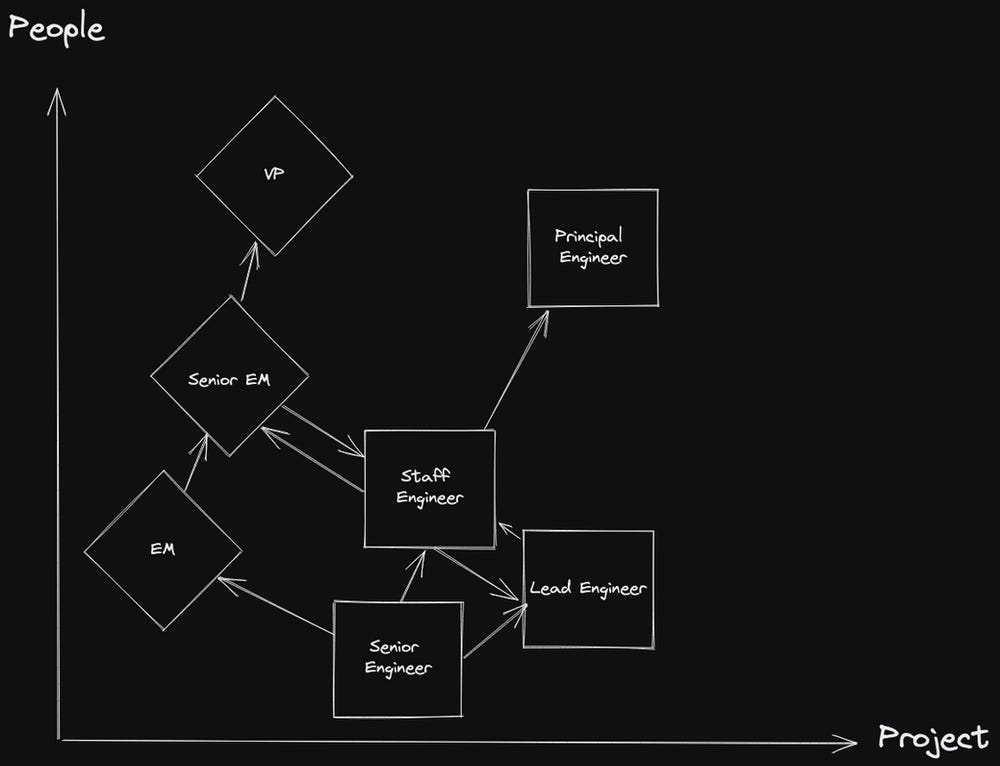Should you take that leadership job?
Let’s say you’re being approached by a recruiter for a leadership role. The more of these requests you receive, the more you start to wonder whether it would be worth a try.
You might even feel that it’s time to make the leap at this stage in your career.
First up, kudos for considering going into leadership. Capable leaders are always needed. If you’ve ever seen one, you know that they can really have a multiplying effect on an organizations performance.
Is your heart in the right place?
People go into leadership for all sorts of funny reasons. Thirst for power, greed, stupid salary range rules, boredom, prestige, ambition, protecting your team mates from meetings.
Then there is the money. A lot of us get lured into management thinking it’s the only way forward, maybe even told that this is the only way to justify a raise.
The truth is that there are a lot of companies out there that pay similar salaries on IC and management tracks, so there is no need to feel pressured in this regard.
If it’s money you are after, you should change the type of company you are working for (higher paying market and/or industry) instead of aiming for a more senior position within your current market.
It sounds funny, but you’d be surprised how many people find themselves in middle management for no other reason than having been put there by their bosses, often with a bit of pressure around money.
Roles aside, leadership is about influence. The question is, what would you like to have influence on?
that the projects you work in run smoothly
that the people you work with are happy and motivated
If you know how you’d like to use your influence, and you accept that your individual contributions become secondary, you are already far more prepared for the switch to a leadership position than most first time leaders are.
Which type of management role?
Although all leadership roles have both people and project components, there is usually a clear focus area.
For example, a lead engineer might mentor a lot of engineers, spend time on developer experience, interview candidates… but the main responsibility is to take ownership of a domain within a project and get that thing shipped!
An Engineering Manager often spends time planning feature delivery, doing code reviews, dealing with all the urgent stuff… but the most important thing is the health and growth of the team.
In the end, the parts of the role you can’t delegate are what you should to be interested in. Long story short: if you dread having 1on1s with a dozen people each week, don’t become an EM and if your communication skills are lacking, don’t try to be a tech lead just yet.
Can I try this stuff without all this pressure?
The short answer is yes. the longer answer is - it depends on whether your organization functions based on something called positional leadership i.e. Bob is in charge, because we said so when we hired him, and all decision-making and leadership of any kind defaults to him on the team.
If your influence however depends on your… well … influence, then you can take charge of a project, do your thing, work together with people to get the job done, and then take a break before you take on your next initiative.
Ideally, this means that people actually care about the initiatives they are leading and aren’t “weighed down” by the constant responsibilities that often come with a management title.
So what can you actually do without the title? Taking the example of a senior engineer, you can already:
mentor people
interview candidates
lead initiatives / projects / peer groups
be a subject matter expert
influence across teams
improve onboarding
Nobody forces you to do all these things, which means you have a lot of freedom to explore your interests. That in turn will help you figure out what roles might suit you in the future.
Do I want to be a manager forever?
The beauty of career tracks in software engineering is that you can swing back and forth like a pendulum between management and IC (individual contributor) tracks, while continuously growing the skills required to succeed on both tracks.
This illustration is how I see people and project leadership responsibilities across common job titles. Staying close to the middle (senior engineer, staff engineer) enables you to move to either side for a while with relative ease.
Switching to a leadership position really doesn’t have to be a permanent change in your career and I would argue that for many people it shouldn’t be.
If you are in project focused roles for a long time, it will be hard to take on people management duties like recruiting, 1on1s and career development. The same would be true when transitioning as a seasoned Lead Engineer to EM. Neither is impossible, but it’s a harder shift.
This is why it’s my firm belief that being a senior software engineer in a more established startup is the perfect position to be in as you can explore a lot within your current role, while also having a lot of freedom for your next move, be it EM, Staff Eng, Lead Eng.
As the role tends to give a lot of freedom, I’d say it’s also the right time to explore more lateral moves towards technical writing, technical PM or evangelist roles.
TL:DR
Leadership can be rewarding, but you should know what you want to influence
Don’t do it for money
Management isn’t for life - you can go back and forth
You can practice a lot of leadership skills without the job title and with a lot more freedom without the constant duties
Maybe you don’t want to lead and that’s okay, too



